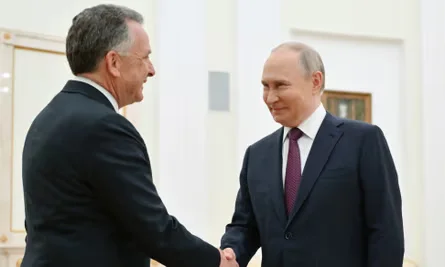
Russia Expands 4G Network in Afghanistan as Strategic Partnership With Taliban Grows
- World News
- June 6, 2025
- No Comment
Report by “Safarti Tarjuman” International News Desk
MOSCOW, _ A Russian telecom firm under U.S. sanctions has deployed a 4G mobile network in Afghanistan, providing coverage for up to 10 million people and marking a major step in Moscow’s growing alliance with the Taliban government.
According to a report by the Vedomosti business daily, St. Petersburg-based Protey installed the core infrastructure for a 4G system in four Afghan provinces in 2024. The move marks the company’s first international deployment of its technology and underscores Russia’s expanding footprint in Afghanistan after the withdrawal of Western forces.
The 4G core network was developed in collaboration with state-owned Rostelecom. It replaces foreign equipment after major global suppliers such as Ericsson, Nokia, and even Chinese firms like Huawei and ZTE pulled back operations following the Taliban’s return to power in 2021.
“This is the first fully Russian-developed core network solution capable of replacing Western telecom infrastructure,” said Rostelecom Vice President Alesya Mamchur.
The newly installed system supports millions of users in a country where access to modern telecommunications remains limited.
The project is part of Russia’s broader strategy to deepen regional engagement in the aftermath of its diplomatic fallout with the West over the war in Ukraine. On April 17, 2025, Russia’s Supreme Court removed the Taliban from its list of banned terrorist organizations, ending a two-decade-long designation.
Although the Kremlin has not yet formally recognized the Taliban government, diplomatic and economic relations have advanced rapidly.
Recent engagements between Russian and Taliban officials have focused on:
- Switching bilateral trade to local currencies
- Rebuilding the key Kabul-to-Central Asia highway
- Planning new railway links to improve regional logistics
These initiatives are part of Russia’s broader push to reassert influence across Central Asia and South Asia, particularly in nations where Western involvement has declined.
Despite international restrictions, the Afghan network launch illustrates how Russia is leveraging its domestic technology to establish infrastructure and political footholds abroad.
Thank you for reading! For comprehensive news coverage and exclusive stories, visit SafartiTarjuman.com






